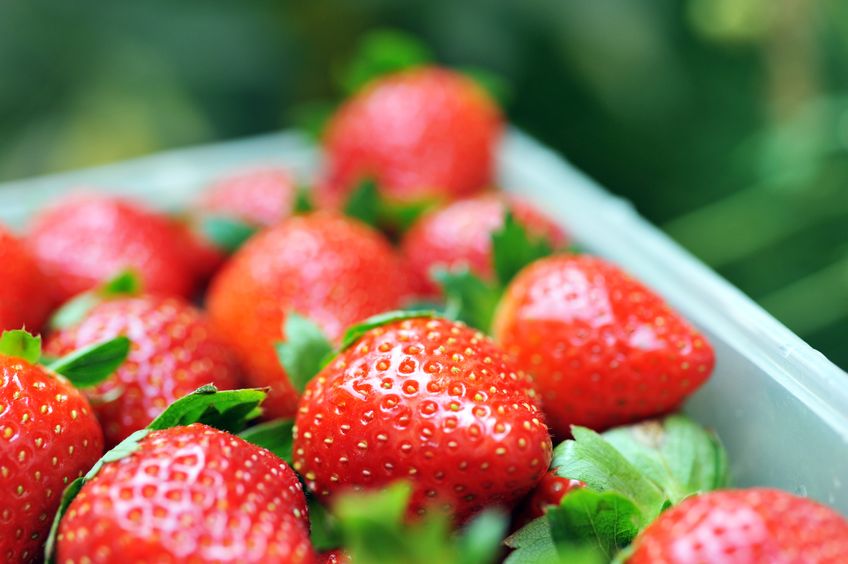
Three out of five growers are finding it more difficult to recruit seasonal workers as a result of the UK voting to leave the EU, new research shows.
Two-thirds (63%) of growers also report a drop in applications for seasonal work, and the same number expect even worse labour shortages next year.
As a result of uncertainty about access to skilled agricultural workforce, four out of five growers (78%) expect to produce less fruit in future, and the same number are rethinking future investment plans.
A third (32%) have already made the decision to invest less in their businesses in future.
British Summer Fruits, the industry body which accounts for 95% of all UK grown berries supplied to supermarkets, has released the new research.
It has lambasted the government for not producing a plan to safeguard homegrown berry production, warning that the delay is posing a serious long-term threat to the industry.
Nick Marston, chairman of British Summer Fruits said British growers are dependent on seasonal agricultural workers from the EU.
“Without them we cannot cultivate and harvest the volumes of berries (strawberries, raspberries, blueberries and blackberries) currently produced in the UK and continue to meet consumer demand,” Mr Marston said.
“Any fall in home-grown production not only increases our dependence on imported fruit, but it will inevitably lead to significant price rises, too.”
Price hike
The Andersons’ Brexit & Seasonal Labour Report also estimated consumers will have to pay between 35 to 50% more for strawberries and raspberries — a price hike which will put the nutrient-rich fruit out of reach of many hard-pressed families.
It estimates that the loss of seasonal labour will push the cost of strawberries up from around £2 per 400g punnet to £2.75 — a price which would put them out of reach of millions of Brits.
Yet a recent YouGov poll reveals that many consumers are blind to the threat of price rises and shortages. One in five (19%) believes Brexit will increase the availability of British strawberries while two out of five (43%) think it will make no difference.
Fewer than one in five people (18%) realise that leaving the European union will have a negative impact on the amount of fresh British strawberries in shops.
Public health nutritionist Dr Emma Derbyshire warned that the implications for health are worrying.
“The National Diet and Nutrition Survey shows that only 31% of adults and 8% of teenagers are eating the recommended five portions a day of fruit and vegetables,” Dr Derbyshire said.
“Strawberries are rich in vitamin C, potassium, fibre and antioxidants and they are one of the few fruits that almost all children enjoy.”
YouGov research shows that 42% of adults buy in-season strawberries at least once a week, but this jumps to 52% when looking at those from the overall sample who are parents with children under the age of 18.
Dr Derbyshire warns: “Anything which makes it more difficult for families to buy these healthy berries will inevitably have a negative impact on the nation’s health.”
Seasonal Agricultural Scheme
To fill in this shortfall in labour the British Summer Fruits — along with the NFU and other agricultural bodies — has been calling for the reintroduction of a Seasonal Agricultural Scheme (SAWS). Earlier this year, the Home Affairs Committee recommended the government to create a new SAWS.
British Soft Fruits chairman, Nick Marston said seasonal workers contribute to the rural economy, and then go back to their own countries at the end of the picking season.
“We are not talking about migration, we are talking about a proven system which would allow seasonal workers into the UK to undertake demanding and highly skilled jobs — jobs which British workers either are not available to do, or quite frankly don’t want to do,” Mr Marston said.
Defra Secretary Michael Gove is on record as saying the case for SAWS is “compelling”.
Last year, president of the National Farmers Union, Minette Batters, warned: “Fruit and veg is rotting in the fields and still we see no action. We absolutely need a commitment to SAWS by 2018.”
Yet no clear proposals have been produced and Parliament was told that a report on the issue, which is being prepared by the Migration Advisory Committee, will not be published until the autumn.
